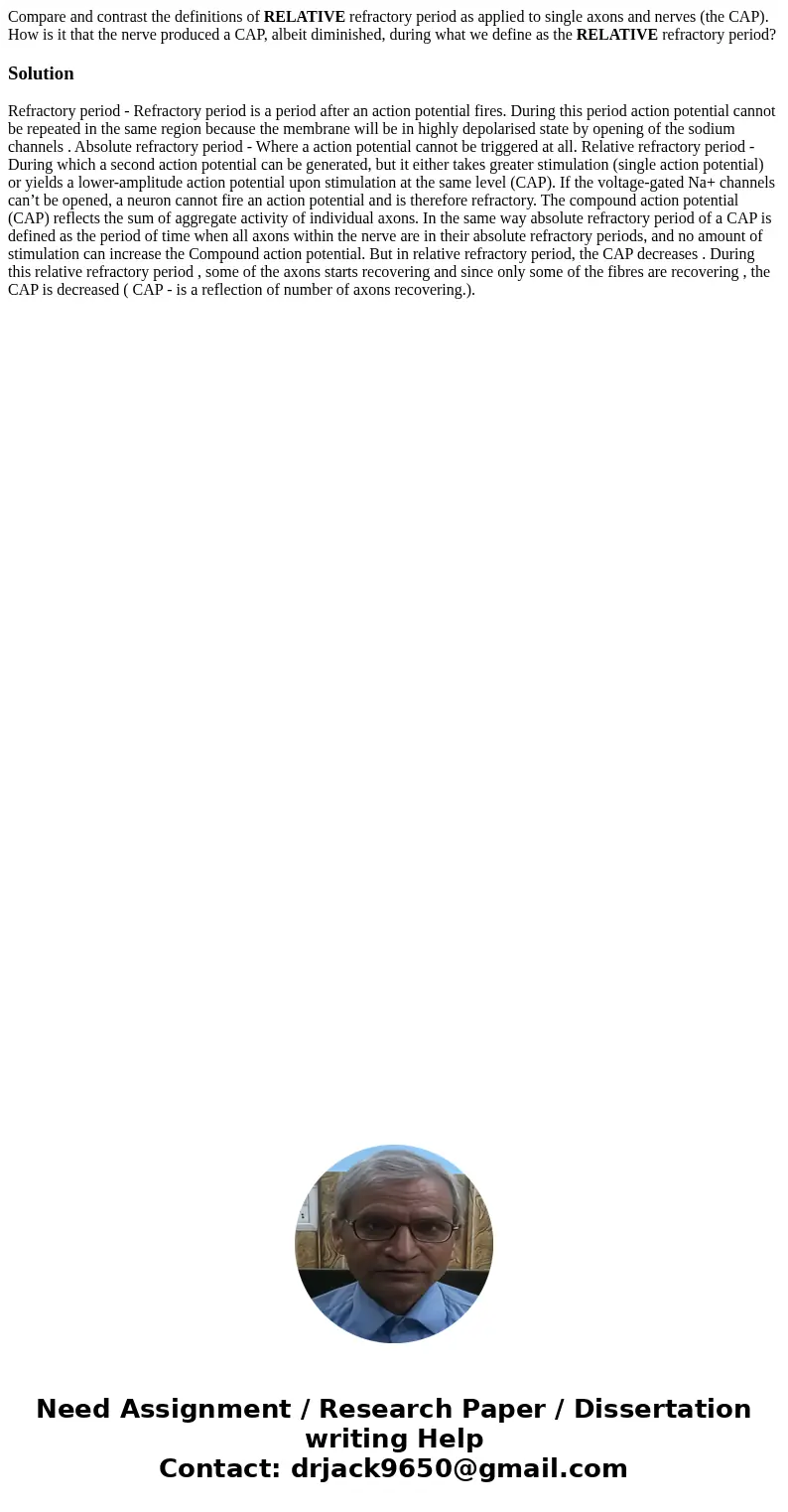Compare and contrast the definitions of RELATIVE refractory
Compare and contrast the definitions of RELATIVE refractory period as applied to single axons and nerves (the CAP). How is it that the nerve produced a CAP, albeit diminished, during what we define as the RELATIVE refractory period?
Solution
Refractory period - Refractory period is a period after an action potential fires. During this period action potential cannot be repeated in the same region because the membrane will be in highly depolarised state by opening of the sodium channels . Absolute refractory period - Where a action potential cannot be triggered at all. Relative refractory period - During which a second action potential can be generated, but it either takes greater stimulation (single action potential) or yields a lower-amplitude action potential upon stimulation at the same level (CAP). If the voltage-gated Na+ channels can’t be opened, a neuron cannot fire an action potential and is therefore refractory. The compound action potential (CAP) reflects the sum of aggregate activity of individual axons. In the same way absolute refractory period of a CAP is defined as the period of time when all axons within the nerve are in their absolute refractory periods, and no amount of stimulation can increase the Compound action potential. But in relative refractory period, the CAP decreases . During this relative refractory period , some of the axons starts recovering and since only some of the fibres are recovering , the CAP is decreased ( CAP - is a reflection of number of axons recovering.).
 Homework Sourse
Homework Sourse